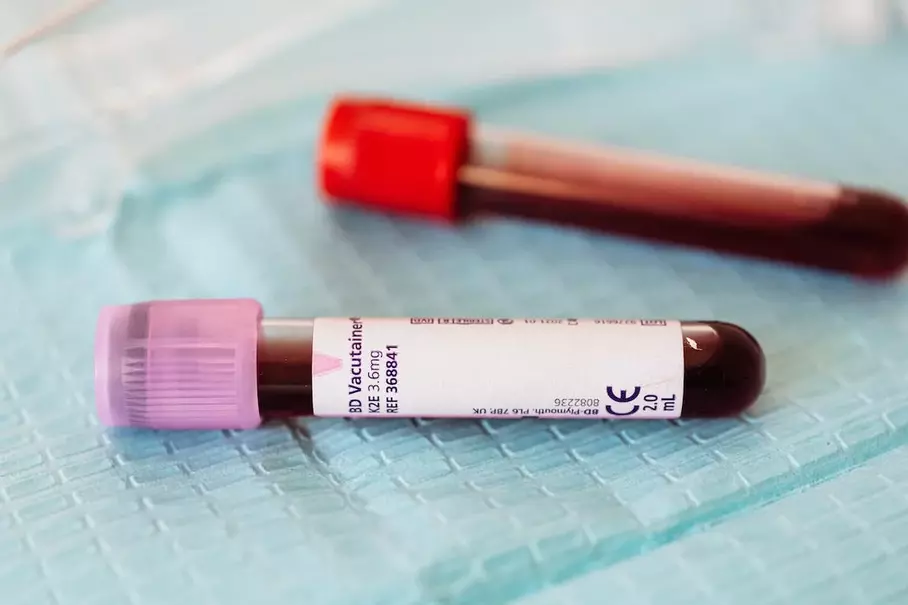Preventive Healthcare
What Is An Iron Blood Test?
2253 Views
0

Understanding iron test results is crucial for evaluating iron levels in the body. It involves a complex interpretation of various parameters measuring iron concentration, binding capacity, and storage. This helps in providing insights into conditions like anaemia or iron overload, providing vital diagnostic information. A precise understanding of these results is essential for appropriate medical interventions and treatments. So, let's delve deeper into the significance of these results and their impact on your health in this detailed read.
What are Iron Tests?
Iron is a vital mineral necessary for producing red blood cells and the proper function of several enzymes within the body. Iron tests are diagnostic procedures used to evaluate the levels of iron within the body. These tests involve blood analyses measuring various iron-related parameters, such as Serum Iron, Ferritin, Transferrin, and Total Iron-Binding Capacity.
The iron blood test normal range in a blood test is 60 to 170 micrograms per deciliter (mcg/dL) or 11 to 32 micromoles per litre (micromol/L). These test values provide crucial insights into the body's iron status, enabling healthcare professionals to determine appropriate treatments, supplements, or lifestyle modifications to address detected deficiencies or imbalances. These iron tests help identify imbalances in iron levels, aiding in diagnosing and monitoring conditions such as iron deficiency anaemia, Hemochromatosis, or other disorders affecting iron metabolism. Serum iron tests are also one of the fundamental tests in assessing and managing various health conditions related to iron levels, ensuring the overall well-being of an individual.
What are They Used For?
Iron studies blood tests play a vital role in diagnosing and monitoring conditions related to iron levels in the body. These tests measure the amount of iron in the blood and the body's capacity to use it. The iron test primarily detects iron deficiency anaemia or iron overload conditions such as Hemochromatosis. Moreover, the S iron tests help identify imbalances in iron levels and aid in diagnosing disorders affecting iron absorption or utilisation, guiding appropriate treatments and lifestyle modifications to address these conditions.
Why do I Need an Iron Test?
An iron test is recommended if there are symptoms suggesting anaemia or suspected iron-related disorders. So, if you are experiencing fatigue, weakness, or exhibiting signs such as pallor, shortness of breath, or restless leg syndrome, your healthcare provider might suggest a serum iron test. Additionally, individuals with chronic conditions impacting iron absorption or those requiring iron therapy might need these iron studies tests to assess iron levels in the body.
What Happens During an Iron Blood Test?
During an iron blood test, a blood sample is typically drawn from a vein, often from the arm. After collection, the blood is sent to a laboratory for analysis. The procedure is generally quick and minimally uncomfortable, with common post-sample experiences including a small bruise or mild soreness at the puncture site. It is crucial to follow any pre-test instructions from healthcare providers, such as fasting before the test, for accurate results.
What is included in iron studies?
Iron studies typically encompass tests measuring Serum Iron, Total Iron-Binding Capacity (TIBC), Transferrin Saturation, and Ferritin levels in the blood to evaluate iron status.
Will I Need to Do Anything to Prepare For The Test?
Preparation for an iron studies test may include fasting about 12 hours before the test to ensure accurate results. This fasting period allows accurate measurement without interfering with recently ingested iron-rich foods or supplements. Certain medications or iron supplements might also be avoided before the serum iron test procedure.
Are There Any Risks to Iron Tests?
Iron tests are relatively safe with minimal risks. The common risks associated with these tests include slight bruising or bleeding at the puncture site where blood is drawn. However, serious complications are rare and mostly limited to fainting or feeling lightheaded after the blood draw.
What Do The Results Mean?
Interpreting iron studies test results involves various measurements to understand iron test levels and blood-related factors.
-
Serum Iron: This measures the actual concentration of iron in the blood. High levels could indicate iron overload or Hemochromatosis, whereas low levels might signify iron deficiency anaemia.
-
Total Iron-Binding Capacity (TIBC) reflects the blood's capacity to bind iron with transferrin. High TIBC might suggest iron deficiency, while low TIBC could indicate anaemia or chronic inflammation.
-
Transferrin Saturation: Calculated by dividing serum iron by TIBC and multiplying by 100 shows the percentage of transferrin binding sites saturated with iron. Low saturation suggests iron deficiency, while high saturation can indicate iron overload.
-
Ferritin: This measures the body's iron stores. Low levels indicate iron deficiency, while high levels can indicate iron overload or liver disease.
Understanding these parameters collectively aids in diagnosing conditions. For instance, low serum iron, high TIBC, and low transferrin saturation often indicate iron deficiency, while high serum iron coupled with high ferritin might indicate iron overload. Interpretation should consider individual patient history and symptoms, correlating the results with clinical context for accurate diagnosis and appropriate treatment decisions.
Conclusion
Understanding the results of iron studies tests involves a comprehensive interpretation of multiple parameters that reflect iron levels and storage in your body. These results aid in diagnosing various iron-related conditions such as anaemia or iron overload. If you are looking for accurate blood testing, Metropolis Labs offers at-home blood sample collection for convenient testing. Leverage the Metropolis TruHealth app and get quick access to test reports for timely intervention.













1701259759.webp)









 WhatsApp
WhatsApp